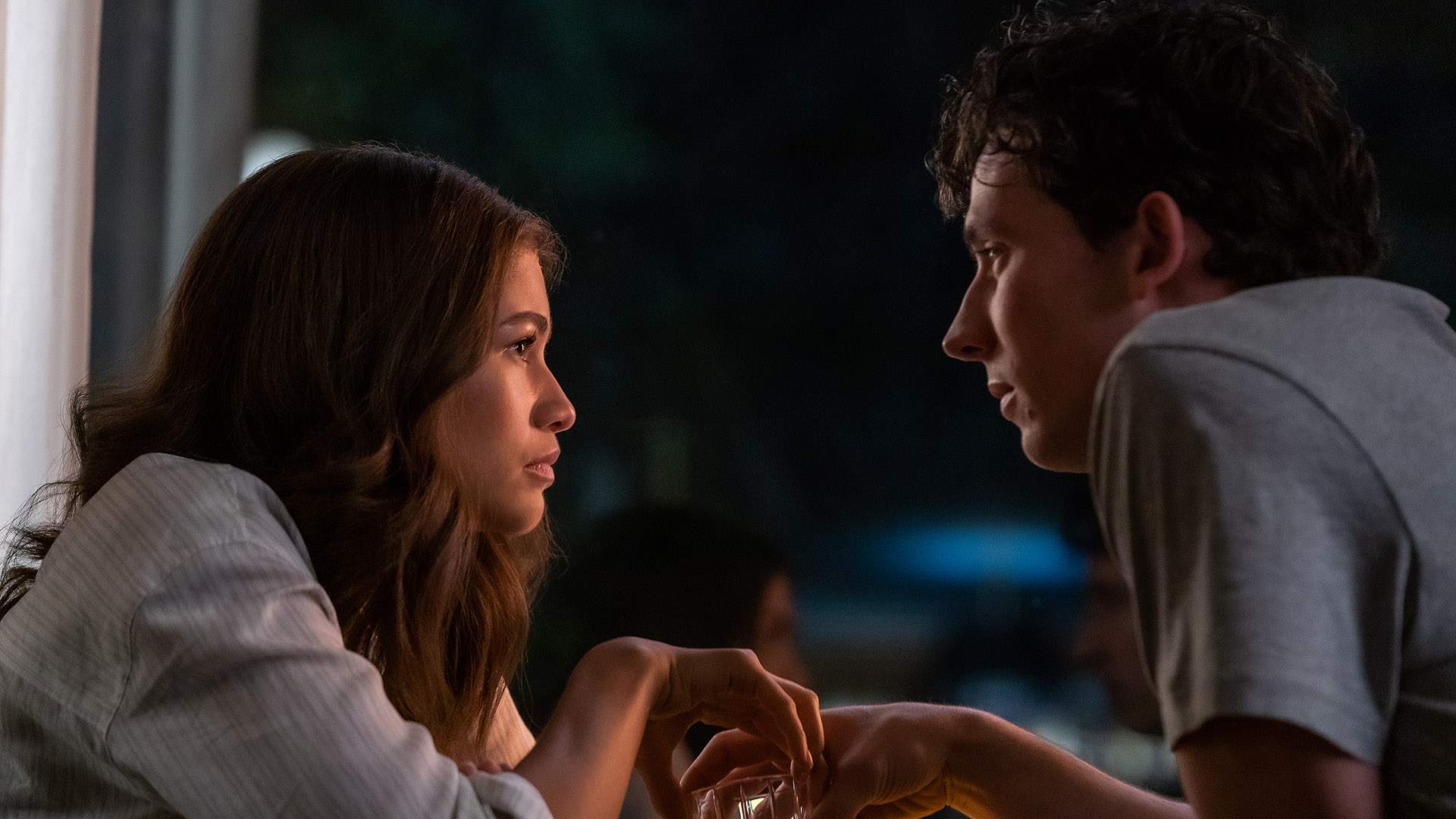'Challengers' in Australia: Zendaya, Josh O'Connor and Mike Faist on Making a Sexy Must-See Tennis Drama
"The tennis is the sex", explained the three stars of Luca Guadagnino's new film when they hit Sydney to chat about love triangles, getting competitive and more.
From start to finish, Challengers plunges into a tennis match. Holding the racquets: Art Donaldson (Mike Faist, West Side Story) and Patrick Zweig (Josh O'Connor, La Chimera). The pair were childhood roommates and best friends, then doubles partners on the court. Meeting Tashi Duncan (Zendaya, Dune: Part Two), a ruthless tennis prodigy destined for big things, changed everything when they were teens — and now 13 years after first crossing her path, Art and Patrick are facing off at a competition that's basically a warm-up for the former, a multiple grand slam-winner is now married to Tashi and also coached by her, but represents Patrick's best route to a chance at big-time professional success.
The bout that bounces back and forth throughout Challengers isn't the movie's only bit of tennis, of course. The latest film by Call Me By Your Name, Suspiria and Bones and All director Luca Guadagnino flits between moments in its main trio's life leading up to the pivotal bout, too, games included. So, as Art and Patrick compete in the movie's showcase showdown, years of complexity are batted back and forth alongside the ball — mentally and emotionally for the pair, and for Tashi as she watches on, seeing her husband and her ex-boyfriend do battle, and wishing that her career hadn't been ended by injury; plus literally for viewers quickly hung up on every serve and return.
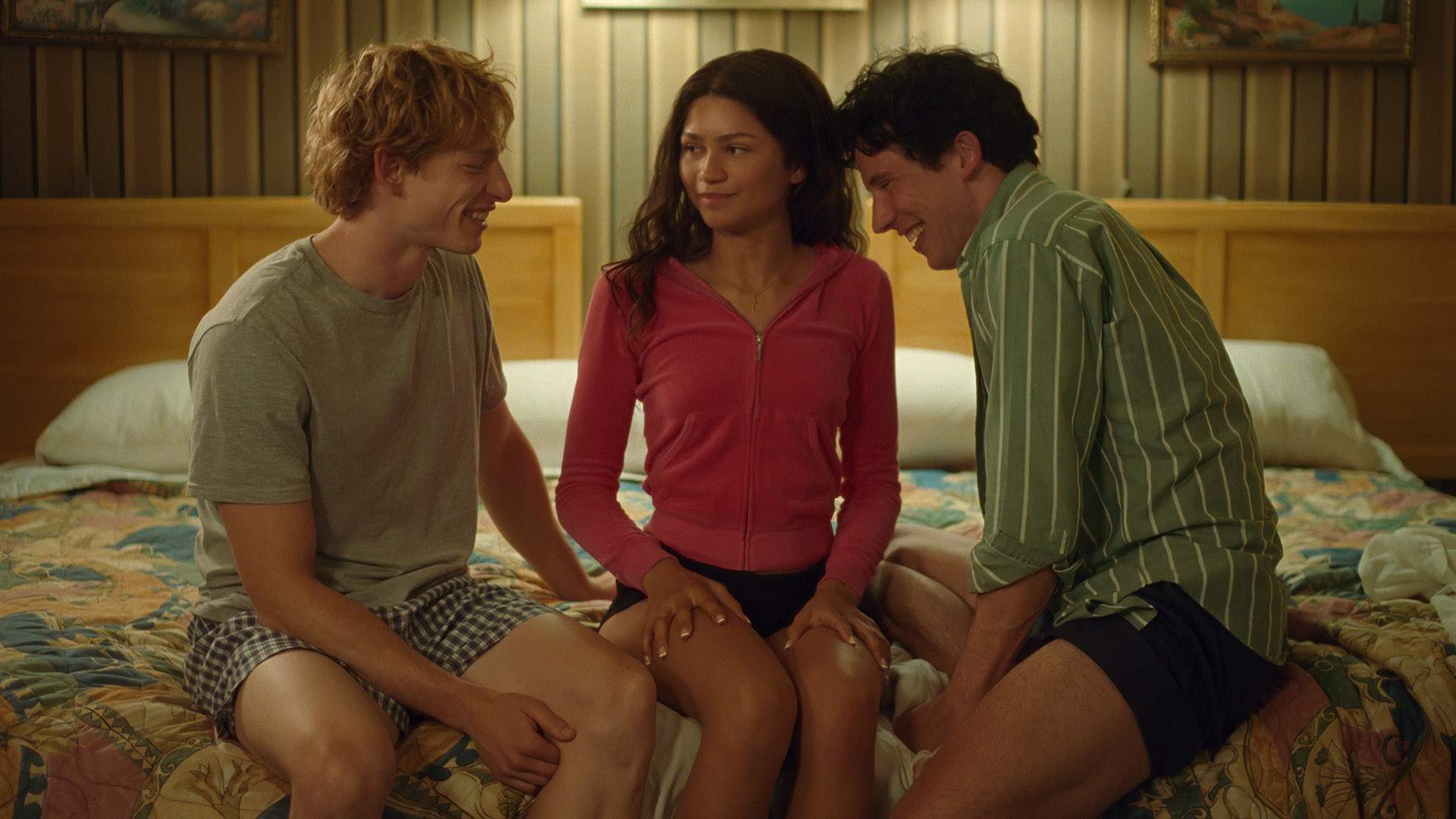
"I felt like we were just shooting this sequence for so long. And you're like 'dang, did we, what day is it? Wait, how is the character feeling at this point?'. Because you're still wearing the same outfits and it's supposed to be one game, but it's like the next week," explains Zendaya in Sydney, where she visited in late March on a promotional tour for Challengers accompanied by O'Connor and Faist.
"I remember we had a storm, some weather issues, which ended up prolonging the process and all these kinds of things, but it was really special and cool. Sometimes I'd feel left out because I was sitting on the side watching them play and I was like 'hey guys'. But it was fun."
Both in that match and whenever else Tashi, Art and Patrick are donning white and standing on green, tennis isn't just tennis in Challengers, though. "The tennis is the sex scene," notes O'Connor about a film that brings one word to mind over and over: sexy. This is a movie about three athletes in a complicated love triangle who are yearning to connect as much as they're lusting for tennis glory, as set to a propulsive and slinky electronic score by Trent Reznor and Atticus Ross (Oscar-winners for Soul). Saying that Guadagnino laces the feature with desire is an understatement — and as anyone who has seen his work, especially both Call Me By Your Name and Bones and All starring Zendaya's Dune and Dune: Part Two co-star Timothée Chalamet, will know, it's also one of his talents.
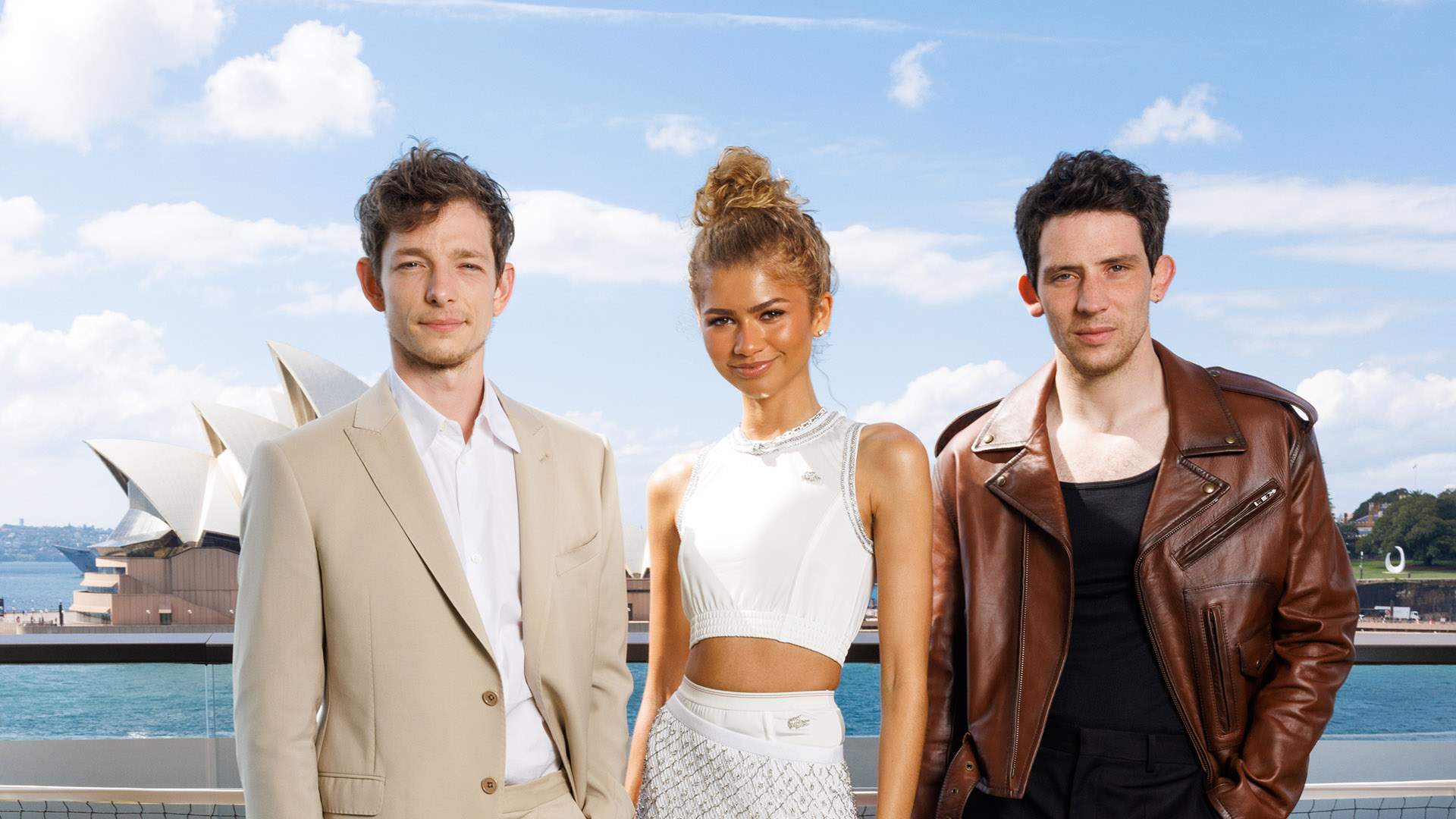
Caroline McCredie
The result: one of 2024's must-sees, no matter how you feel about tennis going in. It's also a flick with much to discuss, as Zendaya, O'Connor and Faist did when they made the trip Down Under to screen the film, and also get talking at a press conference.
Similarly covered: Zendaya doing double duty as a producer on Challengers, the complexity of Tashi as a character, playing such competitive parts, the picture's love triangle and queer themes, its immersive cinematography by Call Me By Your Name and Suspiria's Sayombhu Mukdeeprom, if KC Undercover helped Zendaya prepare for her performance and making "codependency the movie", as she dubs it — and more.

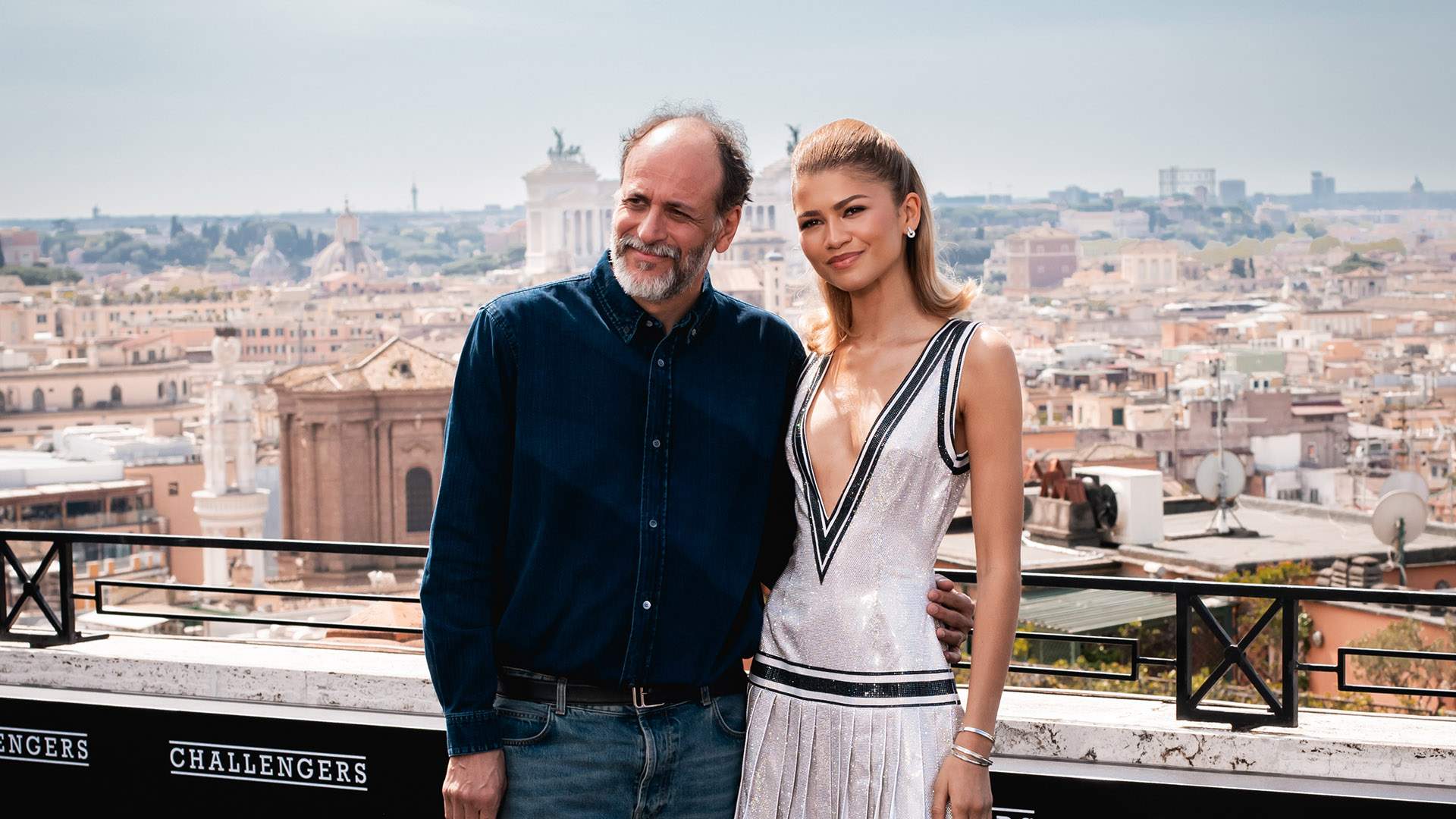
On Zendaya's Working Relationship with Luca Guadagnino as an Actor as Well as a Producer
Zendaya: "It was really, really special. Producing is something that I'm definitely not new to, but for me it's always been a way to be creative in a different sense. I was always a shy kid, and so the more I do this, the more I love moving behind the camera. I love being able to learn from people and and grow from different directors, whether I'm a producer or not. I just like being on sets and learning and asking questions —and problem-solving and figuring out how things work.
And then also I think it's being able to have — I learned quite early, I think, when I was younger, being able to have a real title allows you to be able to protect yourself in a lot of different spaces. It allows for you to be like 'actually, this is what's happening and I can be part of this conversation'. So it also allows me to protect my work and myself and people around me."

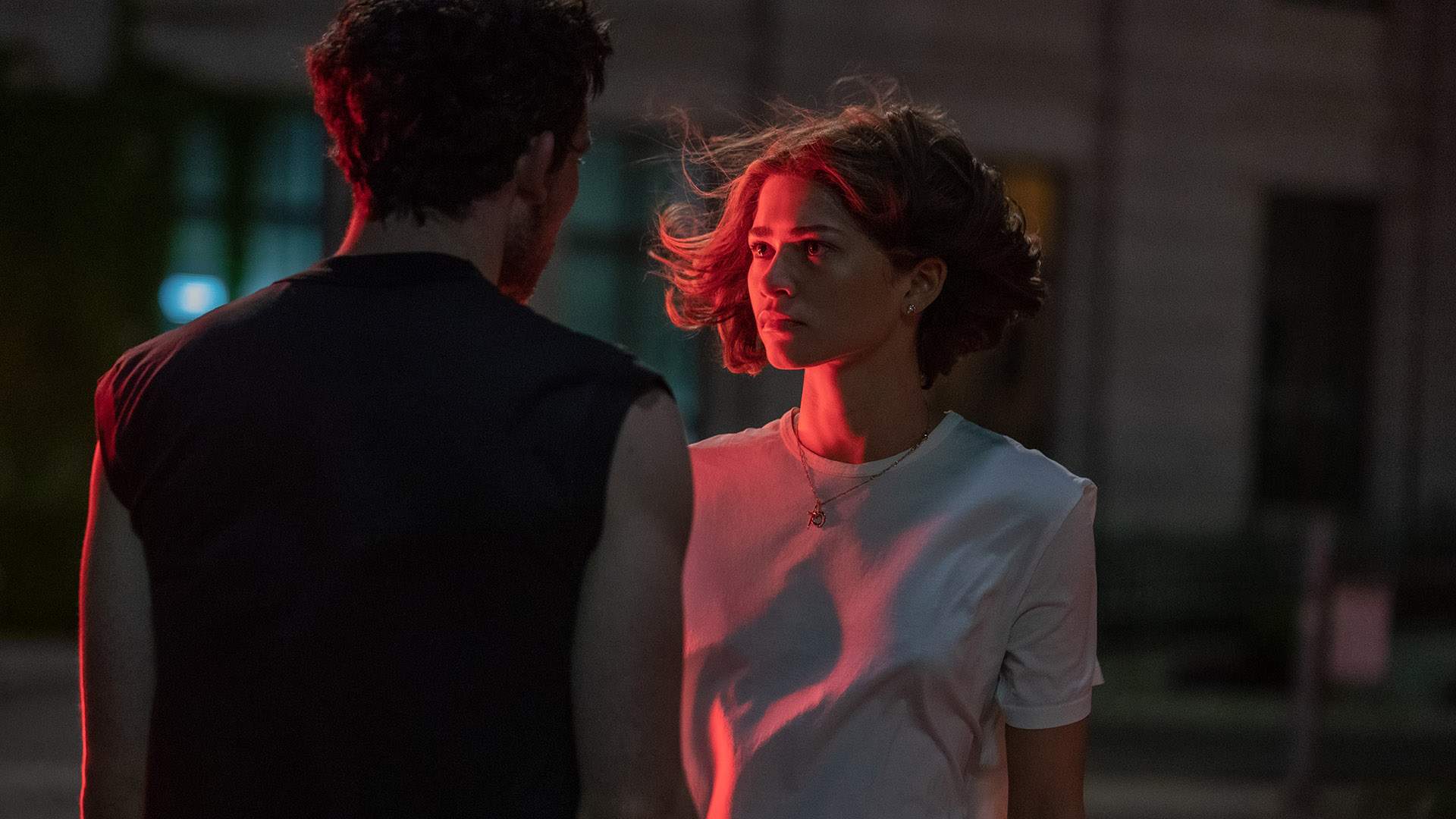
On Tashi's Complexity and What Zendaya Was Most Looking Forward to Tackling in the Part
Zendaya: "I guess the obvious thing to read — I mean, many things these characters do, but to read Tashi, you'd be like 'she's unlikable'. You judge her immediately. You're like 'she's too much'. It's messy. It's whatever.
And so I think my job was trying to find her gooey centre, and trying to find her empathy, and why she makes the decisions and what pain it's coming from. And I think ultimately while she's ruthless, which I love, there is something to her that is — I think it's grief, I think it's grief over a career and a life that she never got to live.
And I think her true love, her one true love, was always tennis. And she is trying whatever she can to be close to it, to touch it, to do it. And so she uses people to get that feeling, because she can't do it anymore on her own. And she's never really had a moment to just sit with it, and I think that she's never allowed herself a moment to feel bad for herself. She's just like 'moving on, what's next?'.
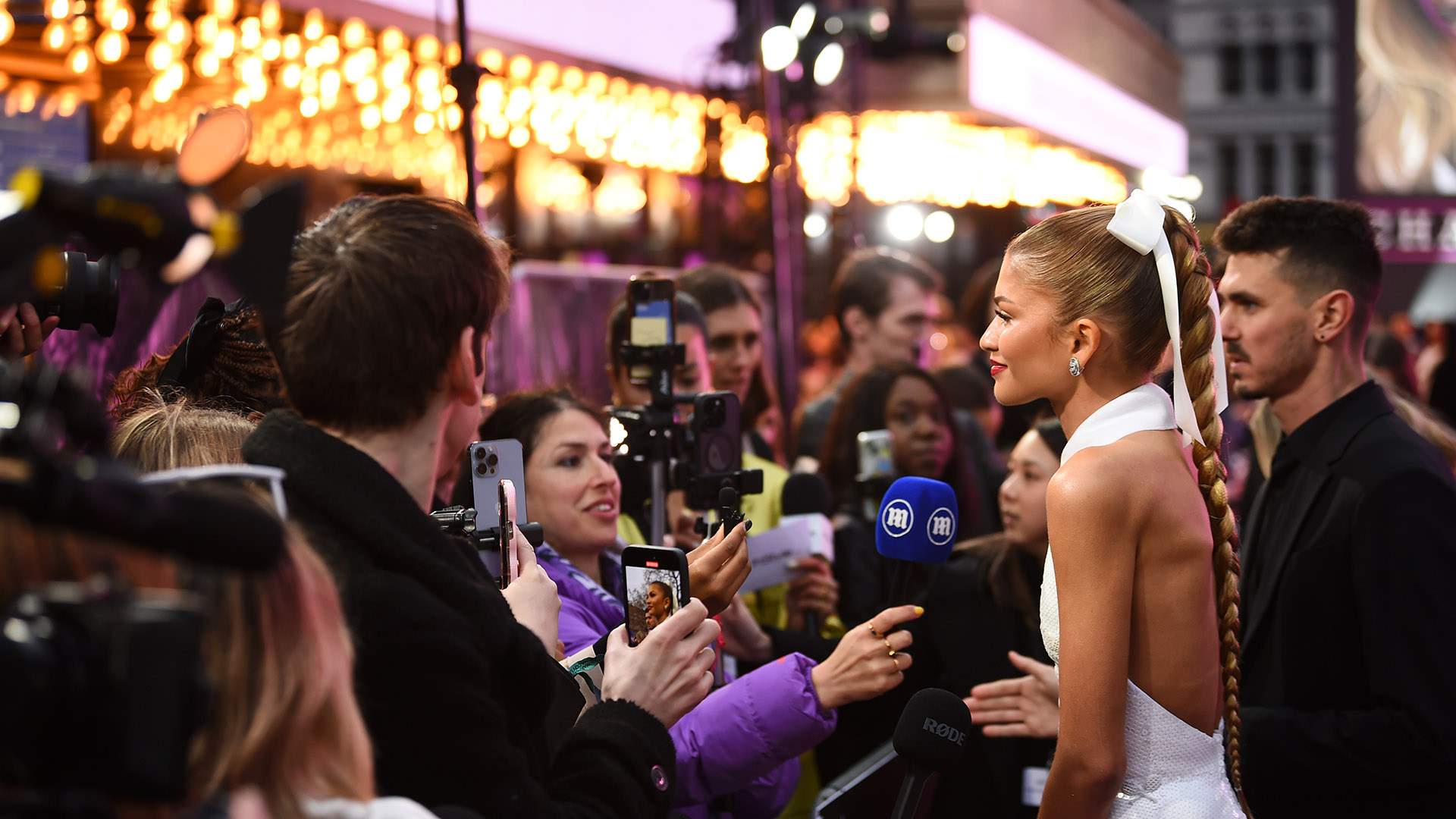
Eamonn M. McCormack/Getty Images for Warner Bros
I think we're watching that become a very real thing for her once her tangibility or her closeness to tennis is threatened by the fact that her husband's ready to be done. And she's like 'what? What do you mean?'.
So these people are lifelines for her. It's her holding herself up and keeping herself alive. So yeah, I think it was figuring out her nuance and not just make her just bitchy, because I don't think she is. I think there's a reason behind everything she does, I hope."

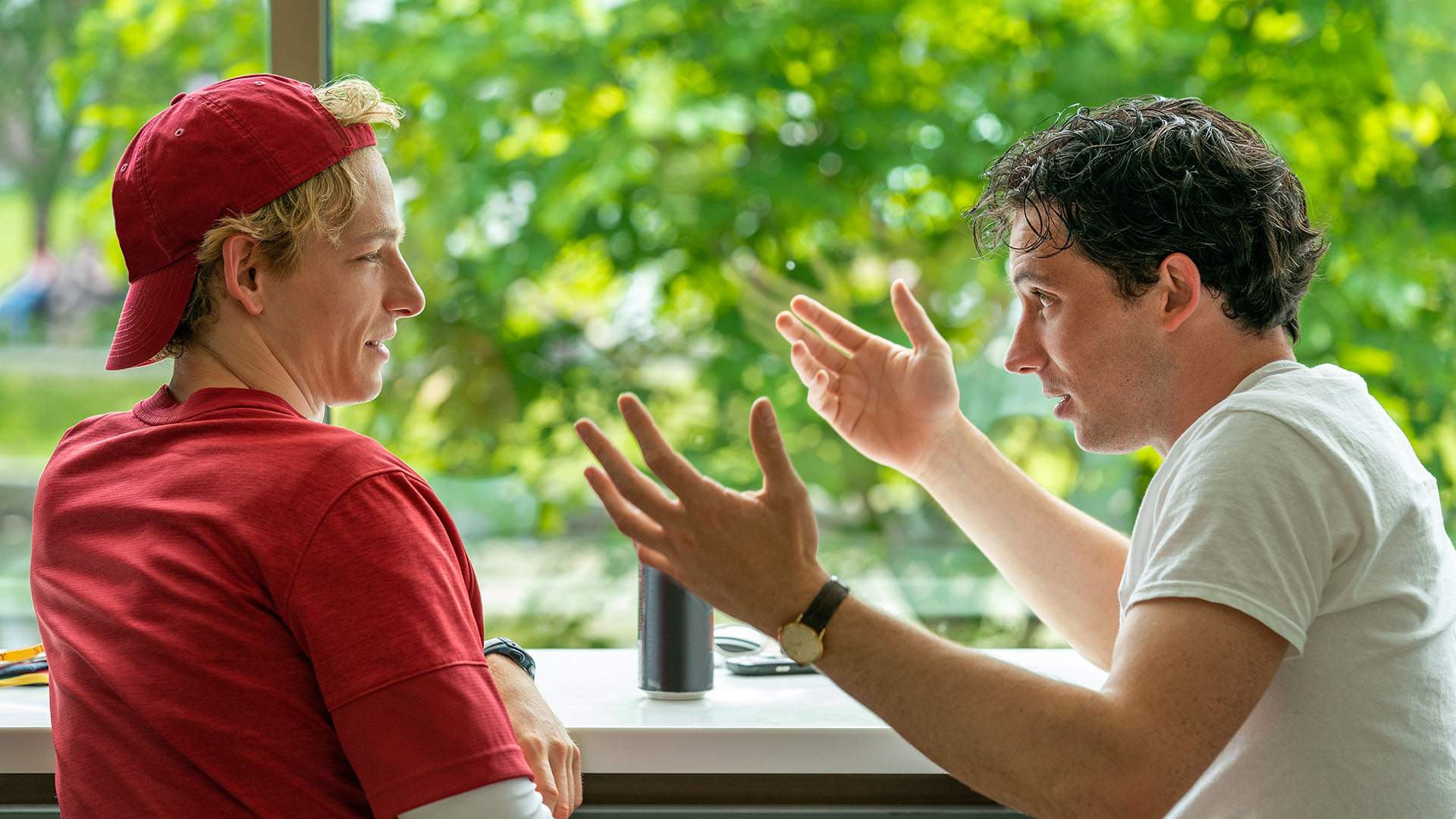
On the Competitive Nature of the Film's Lead Trio
Josh: "I think the competitiveness is also out of an obsession with each other. At the beginning of this film, in terms of the competitiveness, when they're younger that's there but — I don't want speak to their characters, but Art is is on the way of falling out of love with tennis. And I think Patrick is just desperate for connection.
I think all three of them are desperate for connection, whether it's Art seeking to restore the the love in his marriage or Tashi to restore this three-way love affair. I think Patrick, likewise, the tennis to him is the the utmost connection. He's always searching for that with Art, and with Tashi, too. And so I think the competitiveness comes secondary to that. But then also there's…"
Zendaya: "We're so competitive with each other."
Josh: "We are very competitive, but when it comes to tennis, not that competitive because we can't compete. But we were competitive between takes in things like Rock, Paper, Scissors and mini tennis, which I'm actually…"
Mike: "Very good."
Josh: "…Phenomenal at. That was very competitive."

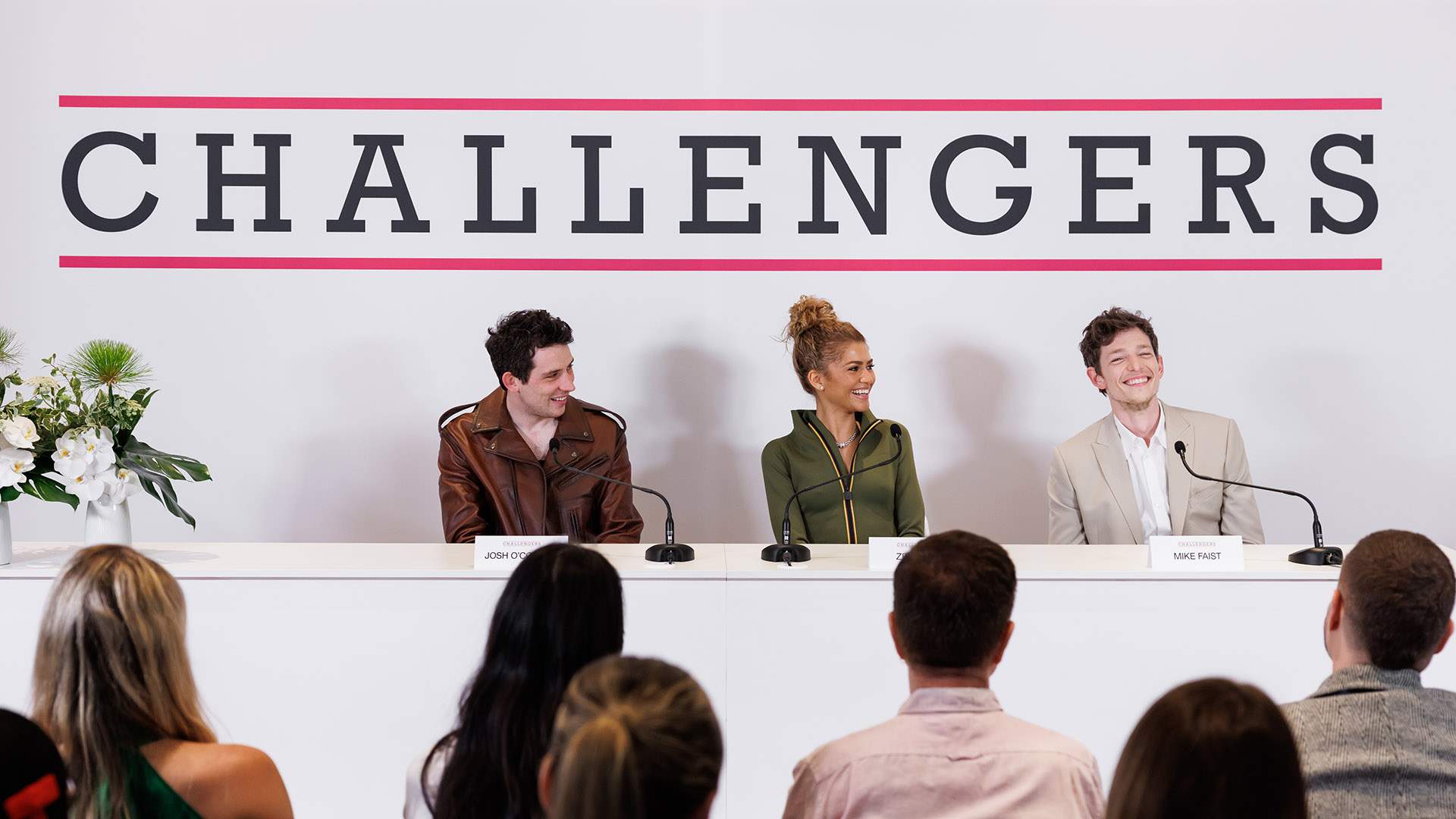
Caroline McCredie
On Whether This is a Film About Love, Tennis or the Love of Tennis
Mike: "It's kind of this weird thing, because I think we naturally as humans bring whatever thing that we're trying to get out of our work — we fall in love with whatever we do, whether that's storytelling in what you guys do or storytelling in what we do. And we can't help but put a piece of ourselves into that, and we're trying to get something out of that as well at the same time.
And so there is this kind of bleeding of lines of that. And so it's probably both, is the truth of the matter."
Zendaya: "We say it's 'codependency the movie'. I think that's what it's about. I also think it's about a million things, and I think tennis is the metaphor in which they use, or we use, to express that.
What I think is really enjoyable, I think people, I've watched it with family and people who are not tennis people or don't really understand how tennis work, and they still feel like they're like 'ohhhhh' inside the match. And there's something alive in them, they still like they can follow it and it makes sense to them.
While hopefully people who do really care about tennis will not be distracted by any of our imperfect forms, and will also be able to enjoy it and feel connected in their own personal way. So I hope it's for everyone."

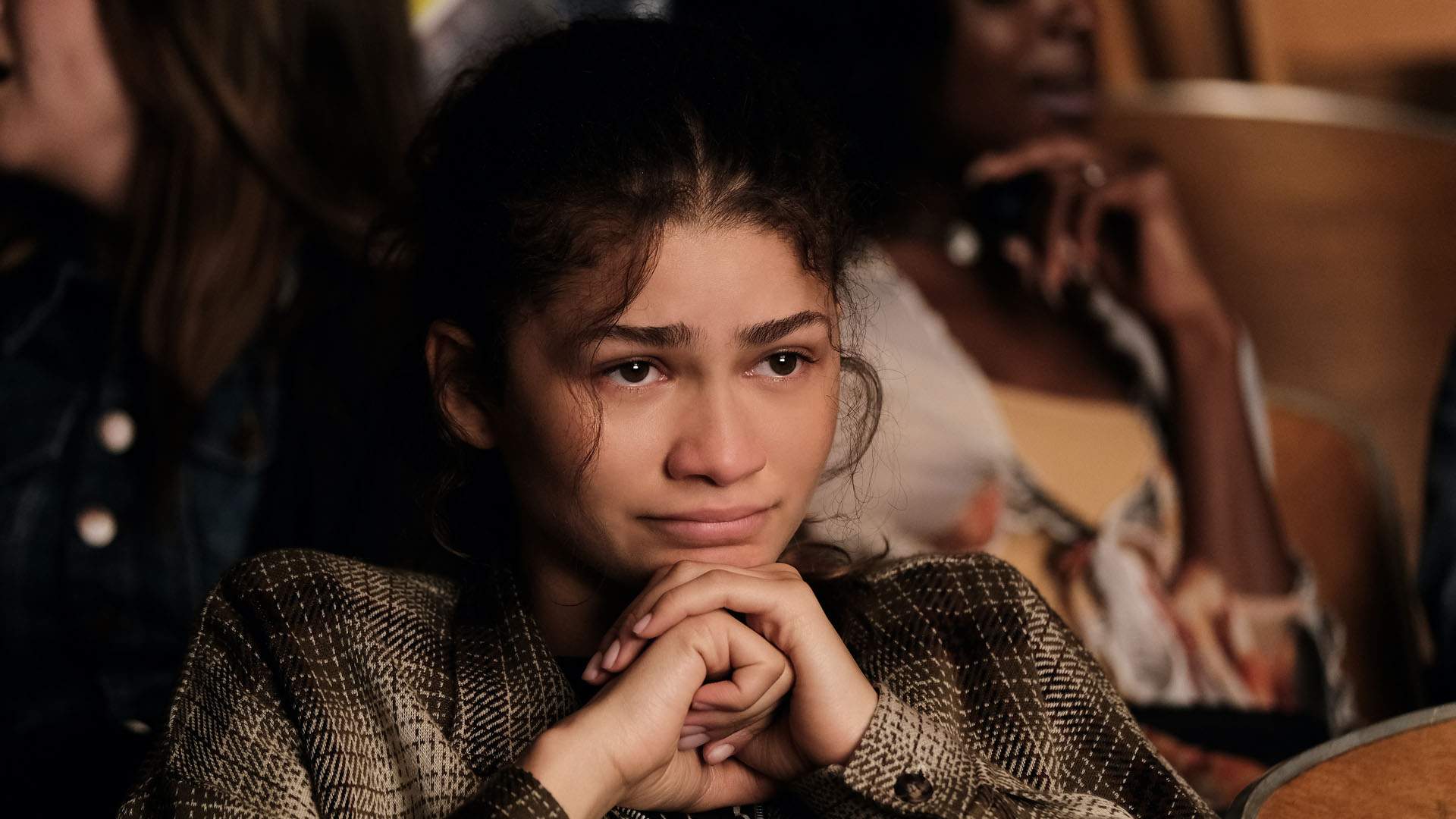
Euphoria, Eddy Chenn, HBO.
On Which of Their Previous Roles Helped the Cast Prepare for Challengers
Zendaya: "KC Undercover. No, I'm kidding. No, listen, the Disney stuff really does — it's a good training ground."
Josh: "I did one sports film a long time ago, very early in my career. I had like one scene with dialogue and then one scene cycling. It was called The Program. Stephen Frears [The Lost King] is the director, it was Ben Foster [Finestkind] playing Lance Armstrong.
I did no training, and I was cycling up, I think it's called the 21 turns in the Alps. And I got two turns in, and I always remember Stephen Frears was in a golf buggy going past, and all the other actors had been training for months, like Jesse Plemons [Civil War] and all these guys, and they were way ahead of me. And I was like [gasps] dying, and I was supposed to be one of the best ones.
So, that doesn't answer your question, because that didn't prepare me at all."
Zendaya: "That trauma."
Josh: "Exactly, the trauma, I guess it taught me that I do have to prepare if I'm playing a sports person."

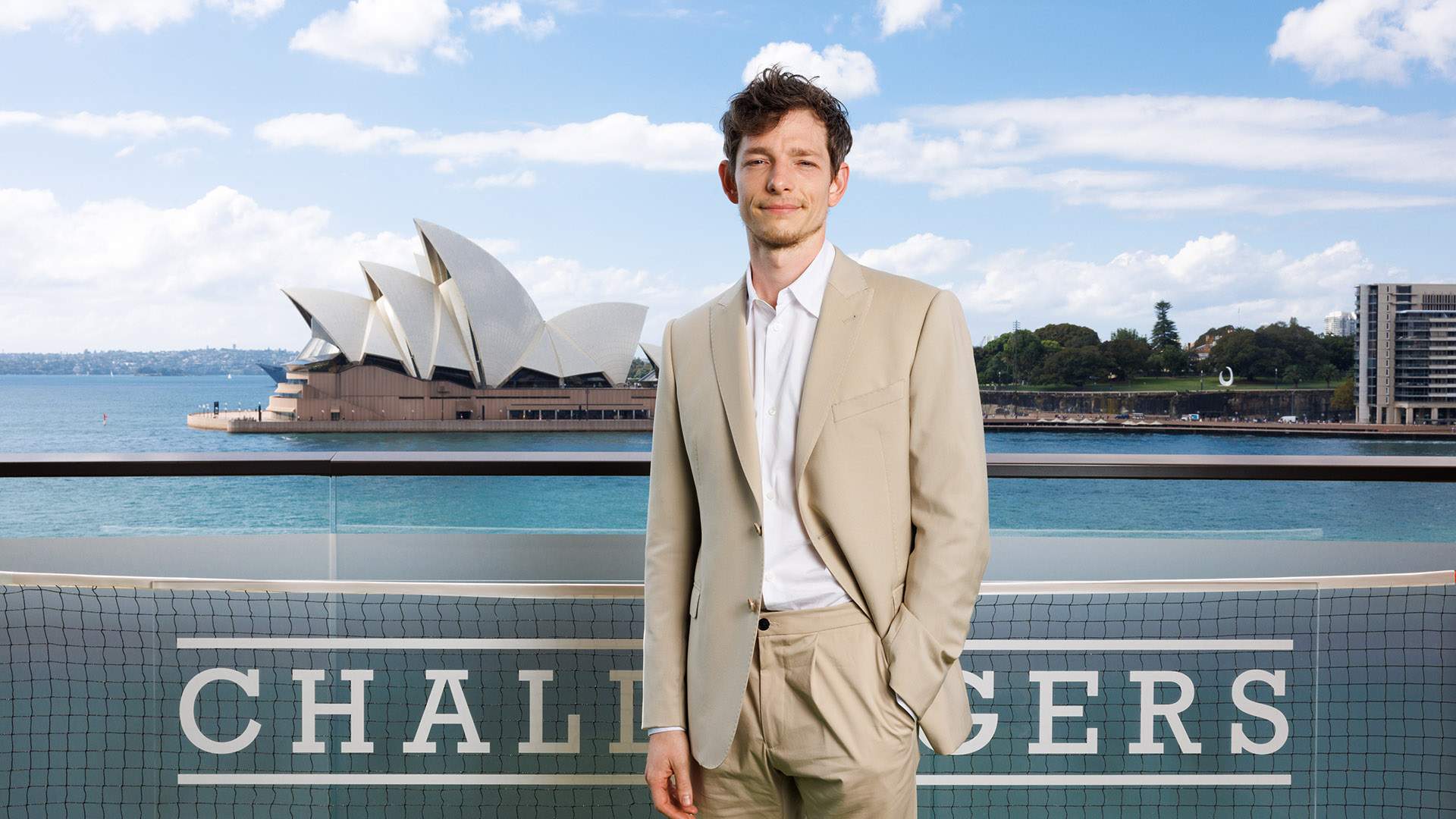
Caroline McCredie
On Getting Into the Win-at-All-Costs Mindset
Mike: "The thing is, that what drew me to the character of Art was this idea of falling out of love with your craft. It's kind of this thing, is this idea I think when you're in your twenties, at least for me, I can speak to myself, is that I'm I moved to New York to become an actor. And I'm just grinding. All you're doing is just working, working, working, working. You're hustling, hustling, hustling.
And then you finally get to a place of somewhat success and you've kind of achieved what you thought was the thing, and then you're of left with that idea of 'well, now what?'.
And it's that thing — you're damned if you do, damned if you don't. It's almost a curse, almost, that thing when you achieve that monumental moment of success. You start to wonder just for yourself 'well, where else can I actually go from here? What else is there in life? Is this all of who I am? What else does compile a life of a human?'.
There's a lot of questions and existentialism that goes within that. And that's honestly what I just connected with, is the truth."

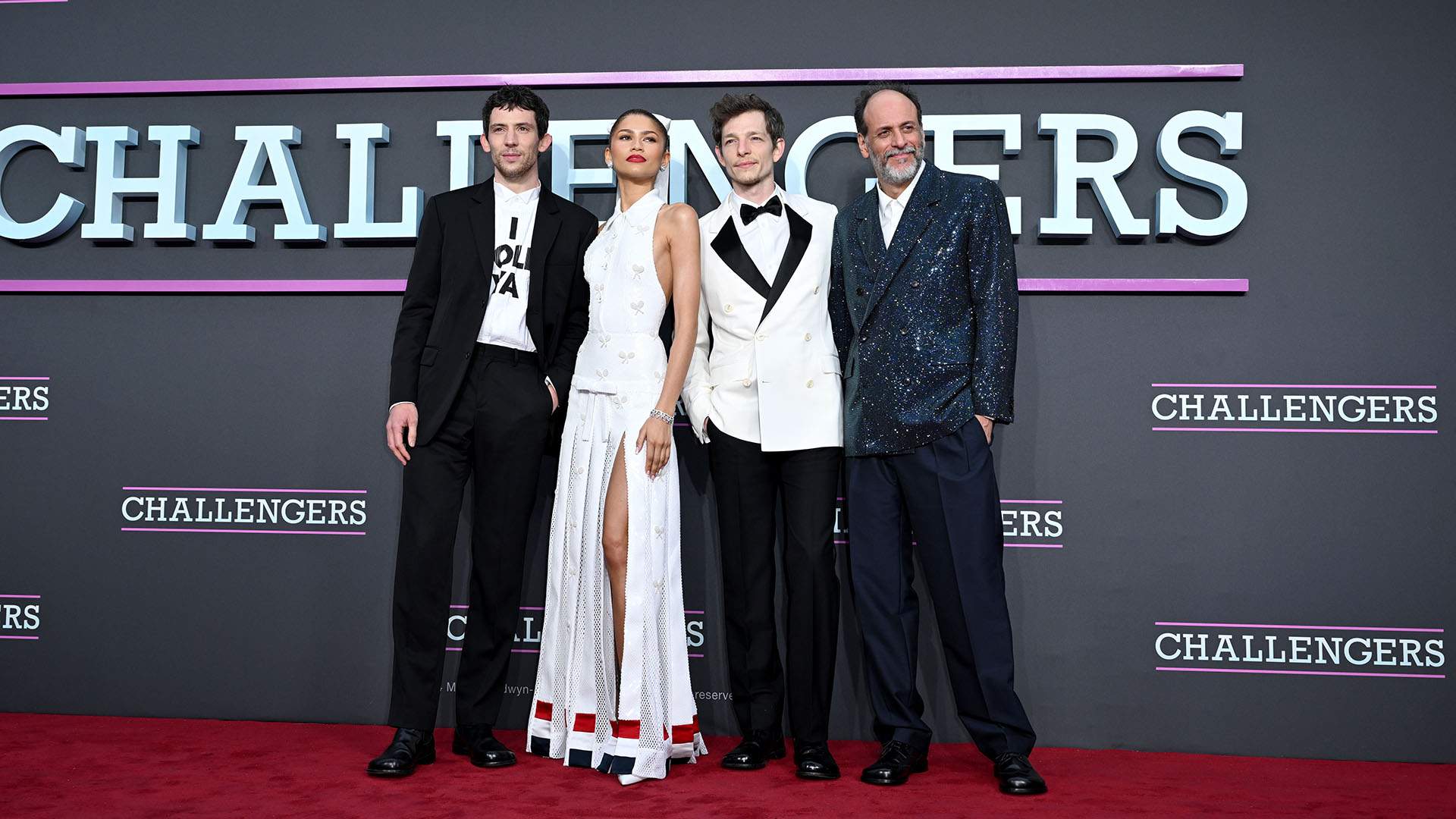
Gareth Cattermole/Getty Images for Warner Bros
On the Way That Guadagnino Portrays Romance and Desire On-Screen, Including Through Tennis
Josh: "Luca's always had this eye for, or an instinct to push that desire, and how to tell desire in ways that are less than obvious — and intriguing. I feel like that's just the responsibility of cinema generally, is how do you show something that is going to resonate in a new way, in a way that we haven't seen before?
And yet also, Luca displays really classic, inspired-from-classics ways of telling love as well. At the same time, he references other films a lot. And so, he's always pushing it that one step further, I think. It feels exciting.
Yesterday we were asked in an interview about the sex scenes. And Z was like 'there aren't any'. It wasn't a stupid question. It was a reasonable question, because it feels so on the edge of that at all times — and actually the tennis is the sex scene. That's their intimacy, and when they're vulnerable."
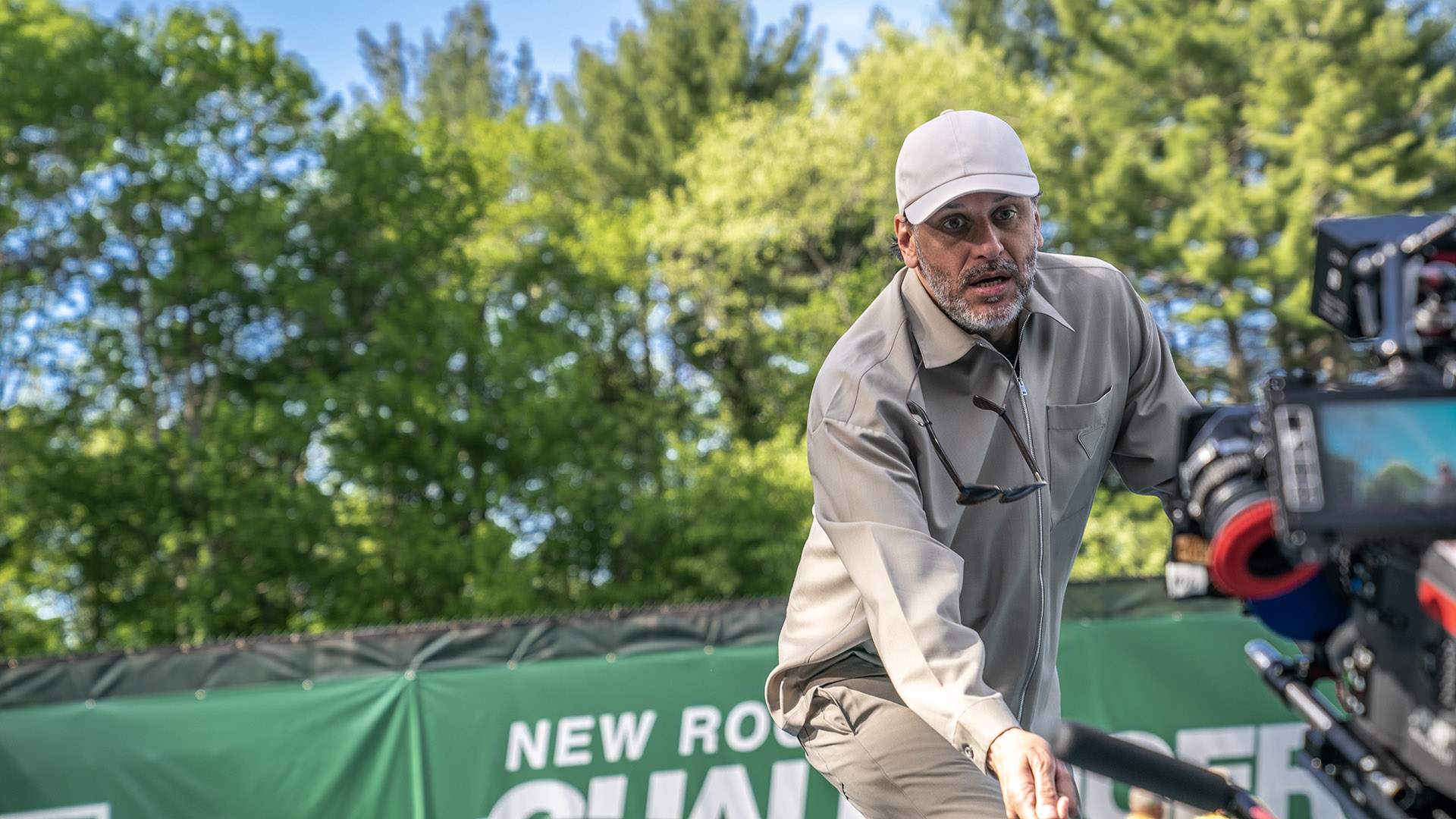
Zendaya: "I do want to chime in real quick and say for someone who had really no idea about tennis and how it worked — because I remember all of us sitting around, and Luca was like, 'wait, so what do the lines, where do they stand like, what is this?'. And we would write out little maps and be like 'okay, so it goes here, and the ball goes here, and what does that mean?'.
So for someone who really started, he really, I think, very quickly understood how to capture the the game — really did it in a way that felt very emotional as well. We never are disconnected from any one of these characters throughout their match, and I think it was very exciting how he made us feel like we were sometimes the character. You know, sometimes the camera is the player, sometimes the camera is the ball, and you just feel immersed inside of this this game.
You can feel the sweat and you can feel their heartbeat. I think that that was really, really special to watch him map out, really map out shot by shot — it was a long shot list — and figure out how to take an audience on a journey visually, but also emotionally, somehow too."

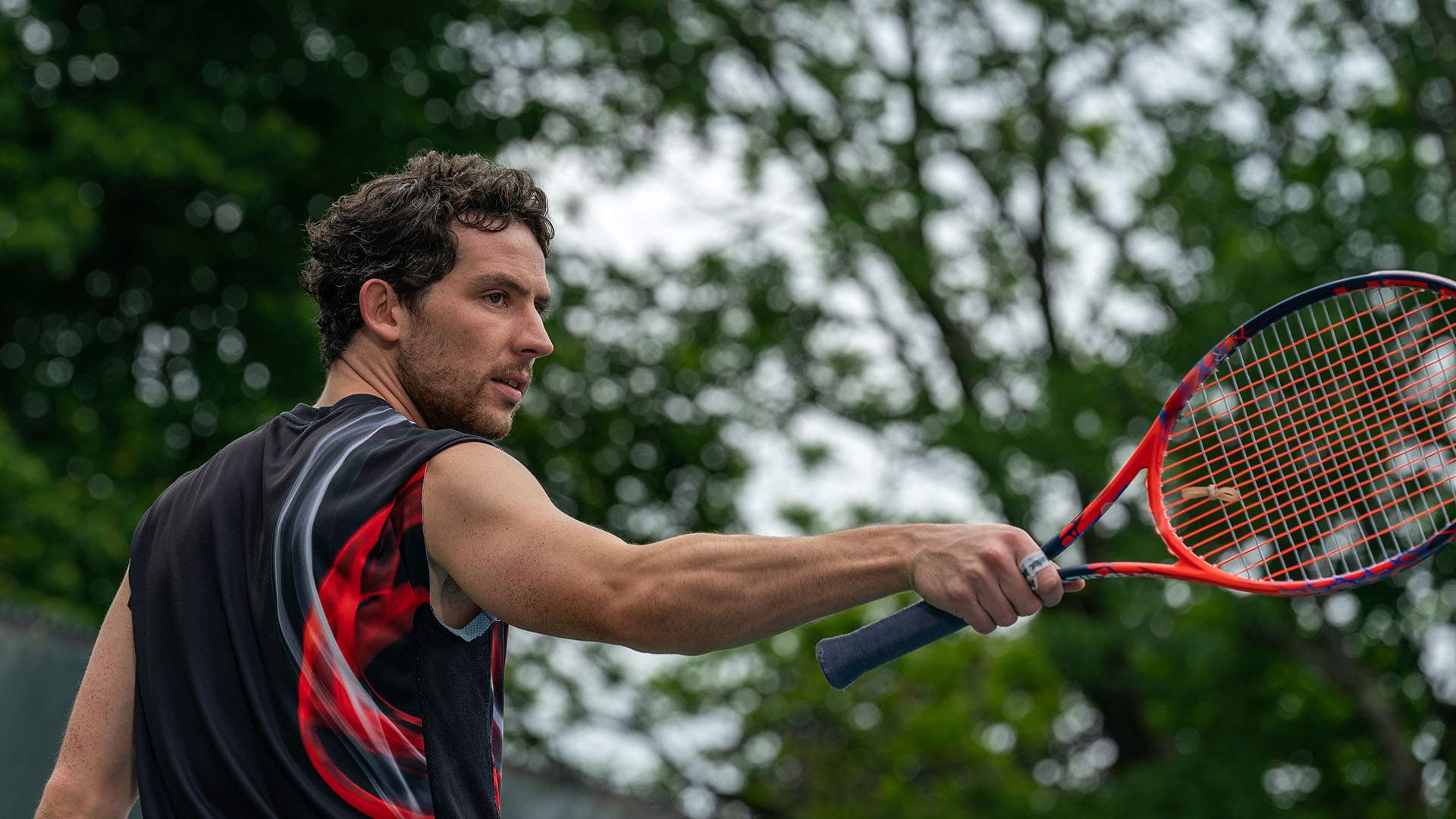
On How the Film Tells Its Tale Visually Thanks to Cinematographer Sayombhu Mukdeeprom
Zendaya: "Sayombhu is amazing. He's such a lovely presence to be around. I think also he's got such a calmness to him, and you can watch him, he'll sit down in his chair and he just looks around, and he's checking the light. Then he'll get up and he'll test something. He'll look, he'll fix it. Then he'll just go sit back down. He's so calm, and and masterful at what he does. Obviously, his previous work, we can see that.
I know this is stupid to say, but like I felt like very, I don't know, like I felt like the light kind also played so much into how our characters — it's not stupid to say, I take that back — it played into our characters. He somehow gave us some kind of youthful glow, somehow, and was able to like make us look younger through his lights, and make us feel like we were in a different part of our life with the way that.
He illuminated our, I don't know, our skin or colour. I'm not sure the specific technique in which he did so, but I felt like I could see a difference in tonality with the way he chose to to light us when we're younger versus when we're older. And I never actually asked him if he did anything different, or if that was a choice by any means, but I felt it at least watching it.
Something feels like when they're younger, the colours feel richer or something, like there's just like the exuberance, and then something he did, he gave us, he contributed, I think, a lot that emotional arc of where the characters go."
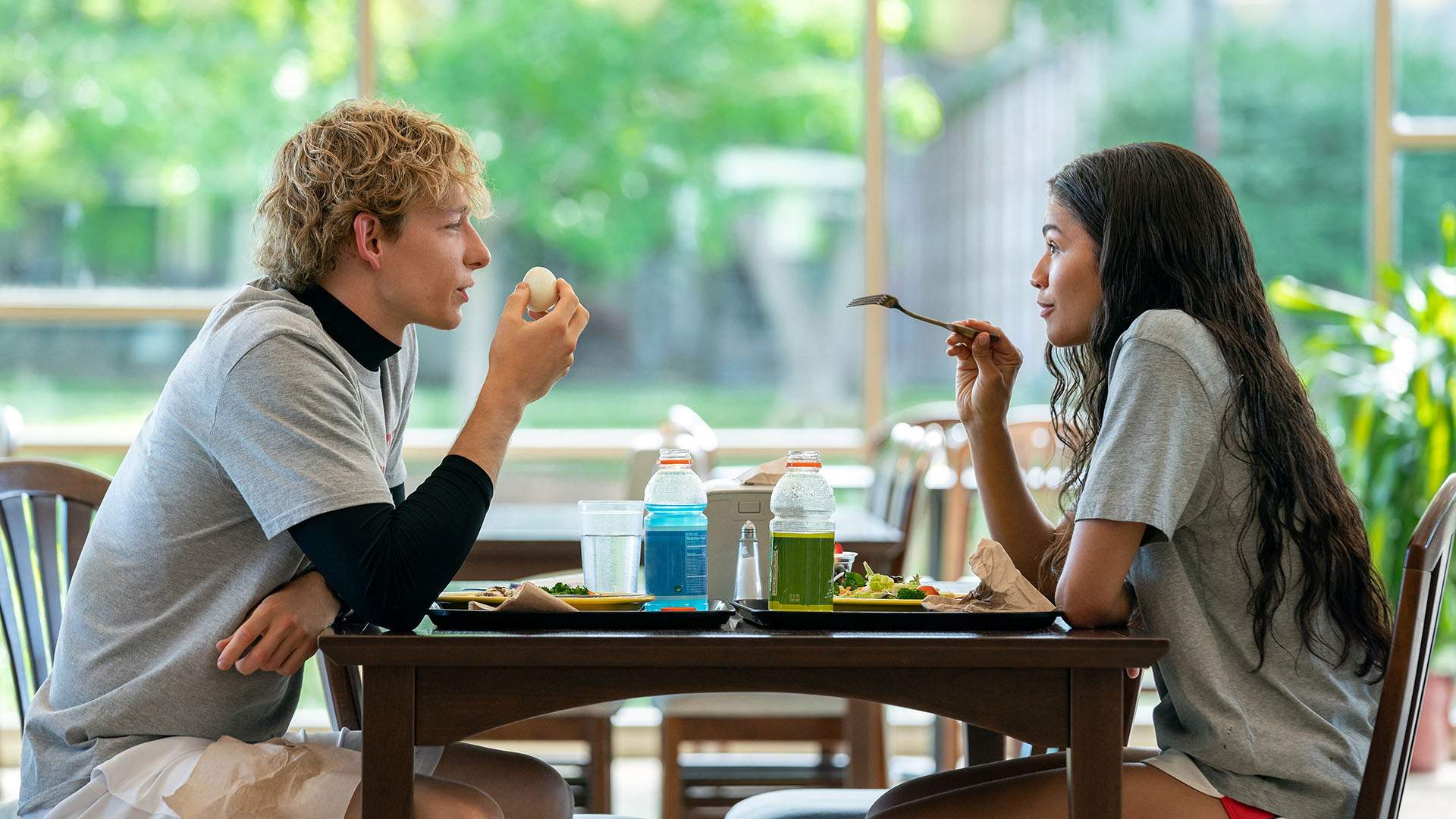
Josh: "He's also really like such a gift for a cinematographer to allow space, so that when you — it sounds really obvious, but it's actually such a talent, to make you feel like there's not a camera there. He was really good at that creating that environment. So Sayombhu, we saw him a lot in rehearsals, and he was the sweetest, most gentle guy. And then during filming, you just see him run past and be like 'what's he doing? He's doing some magic.'.
But really, apart from in the tennis match with the cameras in your face, it generally really felt like we were in our world and left to it, if that makes sense."

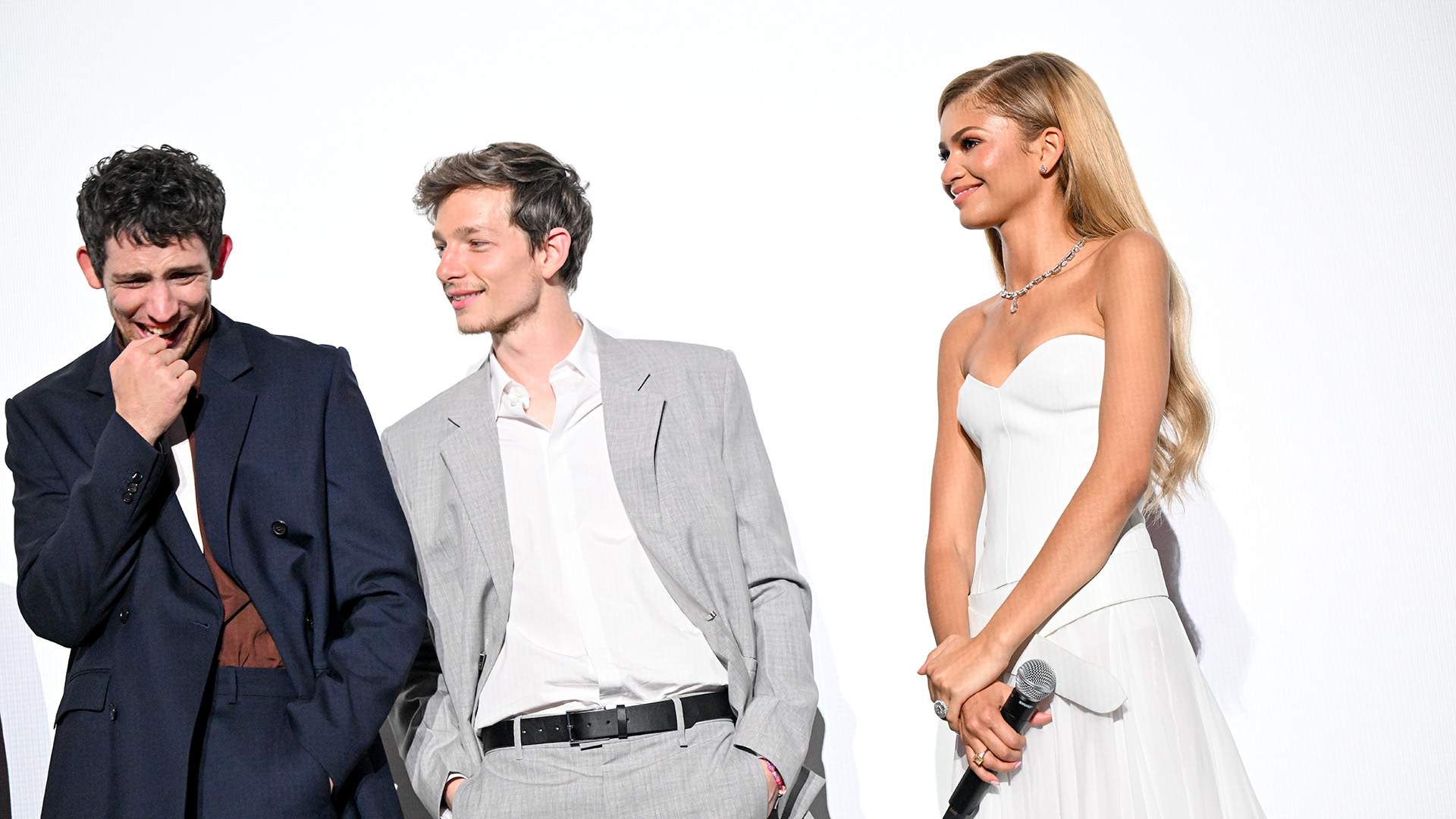
On Exploring the Film's Love Triangle and Queer Angles
Josh: "In some ways, those conversations were never needed to be had, because really it's very apparent from the beginning that love and attraction and lust they have for each other is just unanimous. The point is that the three of them are bound together from the start. The three of us were talking about the first, one of the early scenes when Zendaya comes — oh, Tashi comes — to the hotel room and the three of them are sat there on the floor, which is such a teenage feeling. I think that's captured so well.
But it's really funny as well. And I think from that moment on, the three of them are bound. And so that scene where it's a sort of three-way kiss, and then Tashi's enjoying the observation of the two of them, of Art and Patrick, I just think that puts them in this this tornado together — which allows for them to be incredibly nasty to each other, and act badly and act brilliantly, and compete and push each other. And so the undertones of relationships between all three of them go up and down at all times.
So it's sort of unspoken, but yeah, I can see that that's that's very much there."
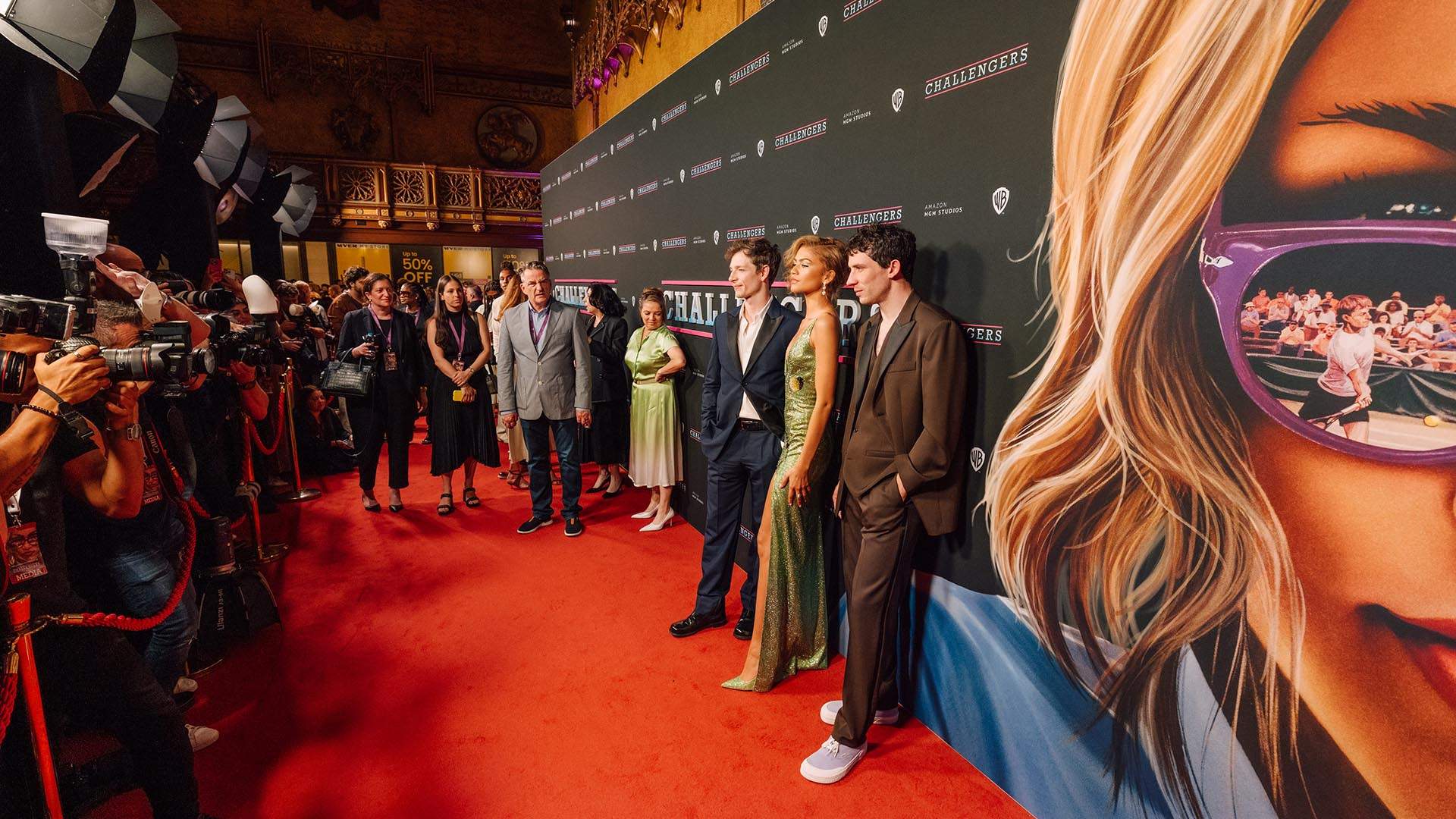
Zendaya: "I agree. Also, just Luca is brilliant, and he knows how to carve things out that he wants more of, and nuance. And so much is done in things that I think aren't even on the page. You know, there's the scene that's on the page, and then there's another one that the characters aren't speaking, but they're saying to us and we can all very clearly read what they're saying. I think that's where he's so masterful.
I mean, he knows what he's doing. So there's such a trust in in his taste, and what his vision is, also, for the characters. And that was apparent when I had my first meeting with him. He really understood them and their connection and their love and their lust and their everything in a deeper way than was just purely on paper. So yeah, it's definitely there."

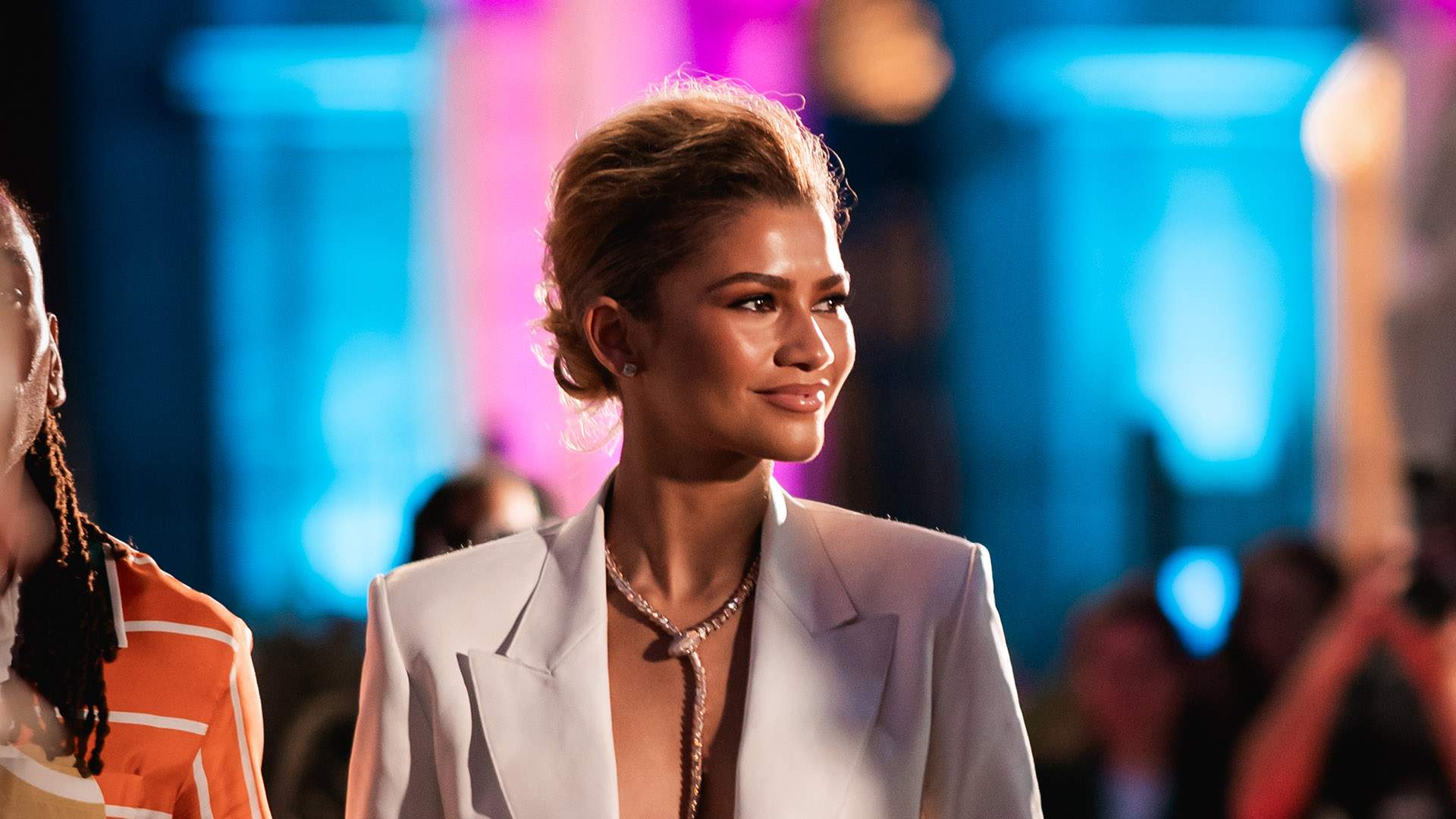
On Playing Someone Who Exudes Power — and Whether Zendaya Relates
Zendaya: "I guess in some ways. I think she enjoys power in a way that I don't think I would ever be comfortable with. I think to me, I have an uncomfortable relationship with that idea. But her, I think it's very clear, I think, from when we first meet her that she's completely unafraid of her power and wielding it over other people, and playing with it and and toying with it, which is what I appreciated about it.
It didn't take her injury to turn into this ruthless power whatever. She was like that as a teenager. She was already going into the game like this. She was like 'I'm a winner and I know that, and I know how to control people, through whatever'.
It's clear from the beginning, so I appreciated that we weren't trying to reason her personality or trying to apologise for how she is. She just is this way, and we just see her, like I said, we see that strong veneer fall apart. The the decision-making gets a little messier, because I think it's now — when she was younger, it was fun, and now it's for survival. Before she was just toying with them because it was fun. And now it's like, 'no, this is my life now'. So I think the stakes became different.
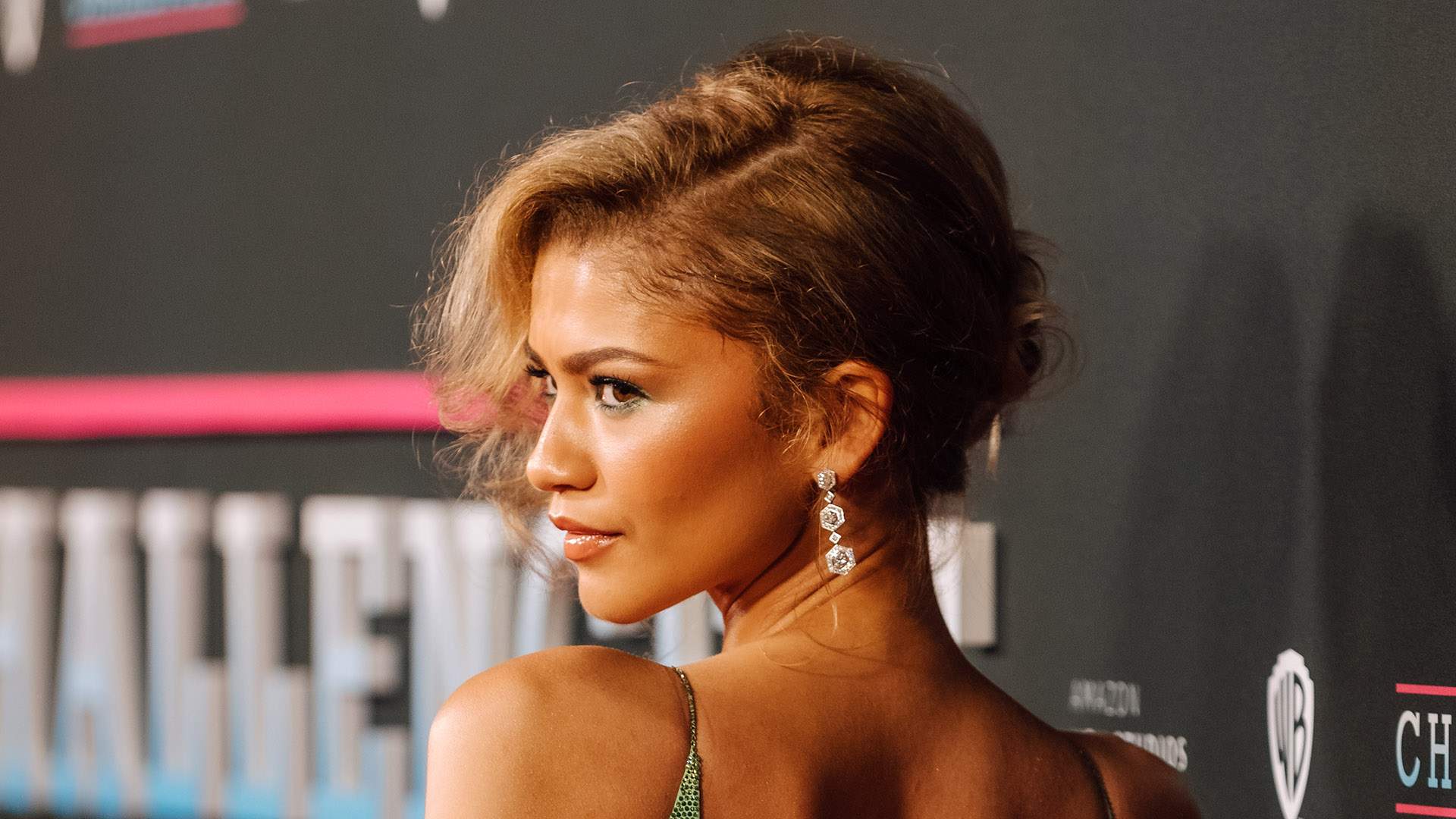
I don't want to relate too much to her now. But I say don't judge them, because I find that upon first viewing, you'll have an opinion — and then you watch it again and I guarantee that opinion will change. And then you watch it again, and it might change again. I feel like every time I watch it, I'm like 'ooh, Tashi girl, what are you doing?'.
And then the next thing I'm like 'actually, she didn't do anything wrong and it was Art all along'. And then I'm like 'actually, Patrick, should have never said that'.
So every time I'm angry at a different character, or I feel more passionate about a different character. I feel heartbroken for — it constantly changes. So I say don't judge because I feel like your opinions will change every time you watch it. And that's the fun part about the film. You just never really have the answers you want, and that makes you question everything and question yourself. And like 'who do I feel like?' It's just one of those those pieces.
That was not to promote or anything — I genuinely mean it, every time I've watched it."
Josh: "But also go at least three times. But, seriously, go four times."

Challengers opened in cinemas Down Under on Thursday, April 18, 2024. Read our review.
Challengers stills: Niko Tavernise / Metro Goldwyn Mayer Pictures © 2023 Metro-Goldwyn-Mayer Pictures Inc. All Rights Reserved.
